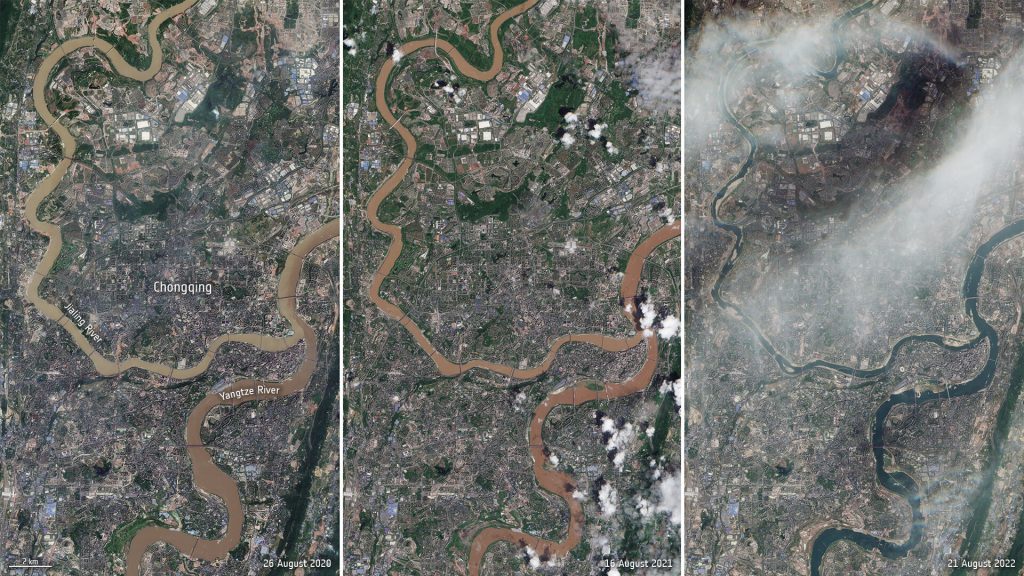
“Drought causes Yangtze river to shrink,” CAPTURED BY COPERNICUS SENTINEL-2 SATELLITE MISSION The Yangtze, a river critical to China’s water and power supplies, falls to half of its usual depth during the heatwave. Such a decrease in depth is a level unseen since 1961.
Global heat waves test water supplies, power providers
Worldwide, extreme heat is pushing infrastructure to its limits. Power outages threaten California as people turn air conditioners to the maximum in an attempt to mitigate the heat, troubling energy providers. Additionally, China and Europe face water shortages as reservoirs drain and rivers evaporate.
“Whenever it gets really hot, my family and I turn our air conditioners really high and drink a lot of cold water,” sophomore Lily Hau said. “If there’s no power, then we can’t do a lot to cool down.”
The failure of both power and water distribution is extremely dangerous to an unprepared citizen. Infrastructure failure is already visible in many areas; several neighborhoods in the eastern Los Angeles have already lost power from extreme strain on the electrical grid. Parts of China are losing access to clean water as reservoirs and their feeding rivers dry up. With failures of infrastructure, many in the areas lacking water and power can develop heatstroke.
“If it’s too hot to practice, like 100 (degrees Fahrenheit), we usually move our practice to around 6 PM,” said junior varsity football player Johnathan Lopez. “It’s too hot around noon, so we usually move it to the evening.”
Without cooling or enough water, a person can develop heatstroke. Heatstroke is a term for when the human body can no longer regulate its temperature due to dehydration and prolonged heat exposure. It can be recognized through a lack of sweat, headaches, and dry, red skin. Lack of sweat is a notable difference between heatstroke and the less deadly heat exhaustion; in the case of heat exhaustion, the victim is sweating profusely, and has clammy, pale skin. Although heat exhaustion is less fatal than heatstroke, it should not be taken lightly because it can quickly develop into heatstroke if the victim remains in extreme heat and is not rehydrated.
“It’s really easy to feel like you’re really sick in the heat,” said sophomore Noah Gonzalez. “It’s like a fever you can’t get rid of.”
Although the effects of heatwaves – direct and indirect – seem dangerous and unavoidable, there is a way to endure them. Through smart usage of power and water, the damage on those systems can be minimized, if not totally avoided. Similarly, if one can recognize the symptoms from overheating and dehydration, treatment can be reached and danger can be avoided.